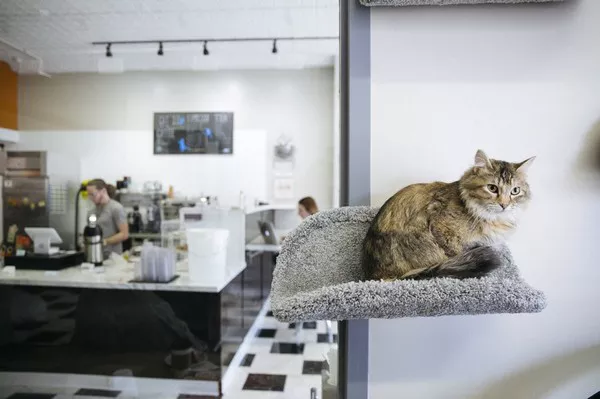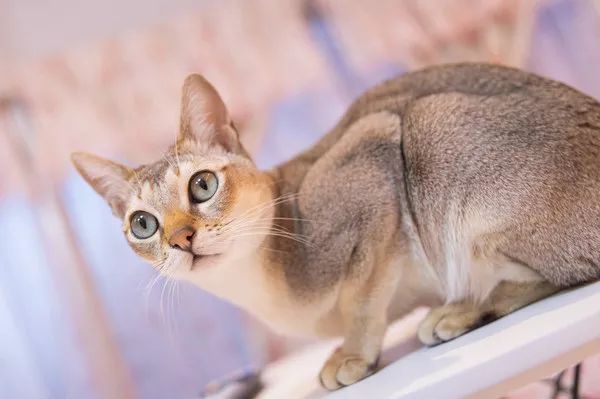A cat‘s skin and coat are often the first indicators of its overall health and well-being. A shiny, healthy coat and supple skin not only enhance a cat’s appearance but also reflect its internal health. Various factors can influence the condition of a cat’s skin and coat, including genetics, environment, and most importantly, diet. Providing the right nutrition is crucial for maintaining healthy skin and a lustrous coat. In this comprehensive guide, we will explore the importance of skin and coat health in cats, the key nutrients that contribute to a healthy appearance, the common skin issues cats face, and the best cat food options available for promoting healthy skin and coat.
Understanding Skin and Coat Health in Cats
The Importance of Skin and Coat Health
A cat’s skin serves as a protective barrier against environmental factors, pathogens, and allergens. It also plays a critical role in regulating body temperature and hydration. The coat, composed of fur and hair, provides insulation and protection from the elements. Healthy skin and coat are essential for:
Protection: The skin acts as a barrier against bacteria, allergens, and parasites. Healthy skin is less susceptible to infections and irritations.
Temperature Regulation: The coat helps regulate body temperature, keeping cats warm in cold weather and cool in hot conditions.
Comfort: Cats with healthy skin and coats are generally more comfortable and less prone to itching and irritation, which can lead to behavioral issues.
Aesthetics: A shiny, well-groomed coat is a sign of good health and vitality, enhancing a cat’s overall appearance.
Common Skin and Coat Issues in Cats
Several factors can lead to skin and coat problems in cats. Some common issues include:
Dry Skin: Dry skin can result from environmental factors, such as low humidity, or dietary deficiencies. It can lead to flaking, itching, and discomfort.
Allergies: Cats can suffer from allergies to food, environmental factors (like pollen or dust mites), or flea bites. Allergic reactions often manifest as itchy skin, redness, and inflammation.
Fleas and Parasites: Fleas, ticks, and other parasites can cause significant skin irritation and lead to conditions like flea allergy dermatitis.
Skin Infections: Bacterial or fungal infections can develop due to compromised skin integrity, leading to symptoms like redness, swelling, and discharge.
Seborrhea: This condition results in oily or flaky skin and can be caused by various factors, including hormonal imbalances or allergies.
Poor Coat Quality: A dull, brittle coat can be a sign of nutritional deficiencies or underlying health issues.
Key Nutrients for Healthy Skin and Coat
To promote healthy skin and a shiny coat, it is essential to provide cats with a balanced diet rich in specific nutrients. Here are some key components to consider:
Omega-3 and Omega-6 Fatty Acids
Fatty acids are crucial for maintaining skin health and coat condition. Omega-3 and omega-6 fatty acids help reduce inflammation, support skin hydration, and promote a shiny coat. They are essential for:
Skin Barrier Function: Fatty acids help maintain the skin’s lipid barrier, preventing moisture loss and protecting against irritants.
Reducing Inflammation: Omega-3 fatty acids, in particular, have anti-inflammatory properties that can help alleviate skin conditions.
Sources of omega-3 and omega-6 fatty acids include:
Fish Oil: Rich in EPA and DHA, which are beneficial for skin health.
Flaxseed Oil: A plant-based source of omega-3 fatty acids.
Chicken Fat: A good source of omega-6 fatty acids.
High-Quality Protein
Protein is essential for the growth and repair of skin and hair follicles. Cats are obligate carnivores, meaning they require animal-based proteins for optimal health. High-quality protein sources provide the necessary amino acids for skin and coat health, including:
Taurine: An essential amino acid that supports overall health and is vital for maintaining healthy skin and coat.
Keratin: The primary structural protein in hair, keratin is crucial for a healthy coat.
Vitamins and Minerals
Certain vitamins and minerals play a significant role in skin and coat health:
Vitamin E: An antioxidant that helps protect skin cells from oxidative damage and supports skin healing.
Vitamin A: Essential for skin health and the maintenance of healthy fur.
Biotin: A B-vitamin that supports healthy hair growth and skin condition.
Zinc: Important for skin integrity and immune function, zinc deficiency can lead to skin issues.
Antioxidants
Antioxidants help combat oxidative stress and support overall skin health. Ingredients rich in antioxidants can help protect skin cells from damage and promote healing. Some beneficial antioxidants include:
Vitamin C: Supports collagen production and skin health.
Blueberries: Rich in antioxidants, they can help reduce inflammation and promote overall health.
Fiber
While not directly related to skin and coat health, fiber plays a role in digestive health, which can indirectly affect skin condition. A healthy digestive system ensures that nutrients are absorbed efficiently, supporting overall health, including skin and coat condition.
Choosing the Best Cat Food for Healthy Skin and Coat
When selecting cat food to promote healthy skin and coat, it is essential to consider the nutritional composition and ingredient quality. Here are some tips for choosing the best cat food:
Look for High-Quality Ingredients
Choose cat foods that contain high-quality, animal-based protein sources as the primary ingredient. Avoid foods with excessive fillers, by-products, or artificial additives. Look for whole food ingredients that provide essential nutrients.
Check for Omega Fatty Acids
Select cat foods that explicitly list omega-3 and omega-6 fatty acids in the ingredient list. Look for foods that include fish oil, flaxseed oil, or chicken fat as sources of these essential fatty acids.
Ensure Balanced Nutritional Profile
Choose cat foods that provide a balanced nutritional profile, including appropriate levels of protein, fat, carbohydrates, vitamins, and minerals. The Association of American Feed Control Officials (AAFCO) sets guidelines for pet food nutrition, so look for products that meet these standards.
Consider Life Stage and Health Needs
Select cat food that is appropriate for your cat’s life stage (kitten, adult, senior) and specific health needs. For example, kittens require more calories and nutrients for growth, while senior cats may need special formulations for their age-related health issues.
Consult Your Veterinarian
If your cat has specific skin or coat issues, consult your veterinarian for personalized dietary recommendations. They can help identify any underlying health problems and suggest appropriate dietary changes.
Recommended Cat Foods for Healthy Skin and Coat
Here are some cat food brands and products that are well-regarded for promoting healthy skin and coat:
Hill’s Science Diet Adult Sensitive Skin and Stomach
Hill’s Science Diet is known for its veterinary-recommended formulas. The Sensitive Skin and Stomach formula contains high-quality protein and is enriched with omega-6 fatty acids to promote healthy skin and a shiny coat. It is also designed for digestive health.
Royal Canin Feline Health Nutrition Skin Support
Royal Canin’s Skin Support formula is specifically designed to support skin health. It features a blend of nutrients, including omega-3 and omega-6 fatty acids, vitamins, and antioxidants, to promote a healthy coat and skin barrier function.
Blue Buffalo Wilderness Grain-Free
Blue Buffalo’s Wilderness line is high in protein and includes omega-3 and omega-6 fatty acids. The grain-free formula is made with real meat as the first ingredient and provides essential nutrients for skin and coat health.
Wellness CORE Grain-Free
Wellness CORE’s Grain-Free formula is packed with high-quality protein and includes added omega fatty acids and antioxidants. This diet is designed to support overall health, including skin and coat condition.
Nutro Ultra Grain-Free
Nutro Ultra’s Grain-Free formula features a blend of high-quality proteins and is enriched with omega-3 and omega-6 fatty acids. It includes a variety of superfoods, such as blueberries and spinach, which provide antioxidants for skin health.
Merrick Purrfect Bistro Grain-Free
Merrick’s Purrfect Bistro Grain-Free line is made with real meat as the first ingredient and includes omega-3 and omega-6 fatty acids. This diet is designed to support overall health and promote a healthy coat.
Orijen Cat & Kitten
Orijen is known for its biologically appropriate cat food that focuses on high-quality ingredients. The Cat & Kitten formula is rich in protein and includes omega fatty acids, making it beneficial for skin and coat health.
Purina Pro Plan Focus Sensitive Skin and Stomach
Purina Pro Plan’s Focus Sensitive Skin and Stomach formula is designed for cats with sensitive skin. It contains high-quality protein and is enriched with omega-3 fatty acids to support skin health.
Transitioning Your Cat to a Skin and Coat Health Diet
If you decide to change your cat’s food to promote skin and coat health, it is essential to transition gradually to avoid digestive upset. Here are some steps to follow:
Gradual Transition
Start by mixing a small amount of the new food with your cat’s current food. Gradually increase the proportion of the new food over a week or two until your cat is fully transitioned.
Monitor Your Cat’s Response
Keep an eye on your cat’s appetite, energy levels, and any changes in skin or coat condition. If you notice any adverse reactions, consult your veterinarian.
Regular Grooming
In addition to a healthy diet, regular grooming is essential for maintaining a healthy coat. Brush your cat regularly to remove loose hair, dirt, and debris, and to distribute natural oils throughout the coat.
Maintain Hydration
Ensure your cat has access to fresh water at all times. Proper hydration is crucial for skin health, as it helps maintain moisture levels in the skin.
Consult Your Veterinarian
If your cat has persistent skin or coat issues, consult your veterinarian for further evaluation and recommendations. They can help identify any underlying health problems and suggest appropriate dietary changes.
Conclusion
In conclusion, maintaining healthy skin and a lustrous coat is essential for a cat’s overall health and well-being. A balanced diet rich in essential nutrients, including omega fatty acids, high-quality protein, vitamins, and antioxidants, plays a crucial role in promoting skin and coat health. By selecting high-quality cat food and providing proper care, cat owners can help their feline companions achieve and maintain optimal skin and coat condition.
Brands like Hill’s Science Diet, Royal Canin, Blue Buffalo, and Wellness offer excellent options for promoting healthy skin and coat. Additionally, transitioning to a new diet should be done gradually, and regular monitoring of your cat’s health is essential.
Ultimately, a proactive approach to nutrition and care can significantly enhance a cat’s quality of life, ensuring they remain healthy, comfortable, and beautiful throughout their lives. By prioritizing our cats’ dietary needs and grooming practices, we can help them enjoy a vibrant, healthy coat and skin, reflecting their overall vitality and happiness.
Related topic:



























